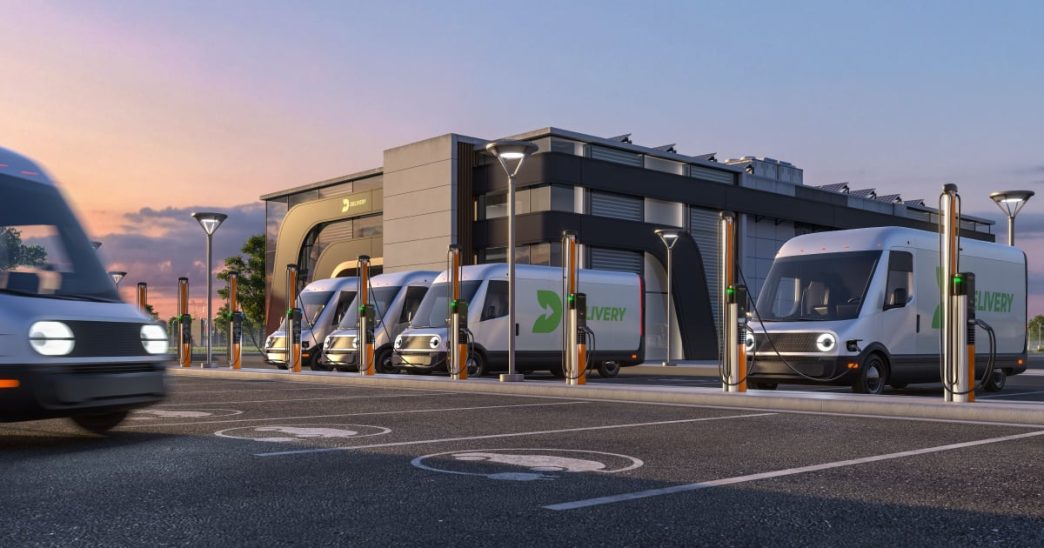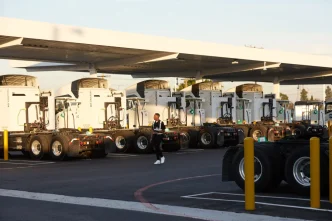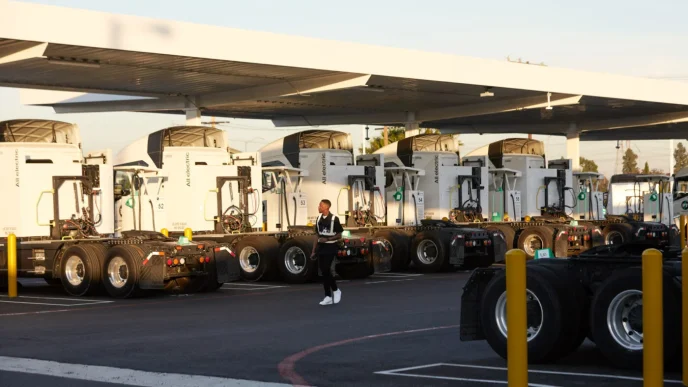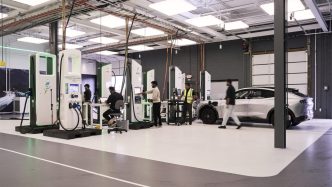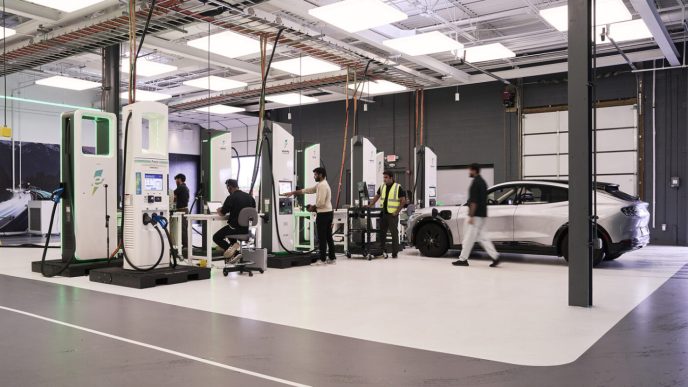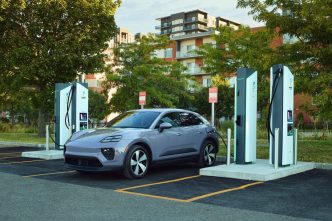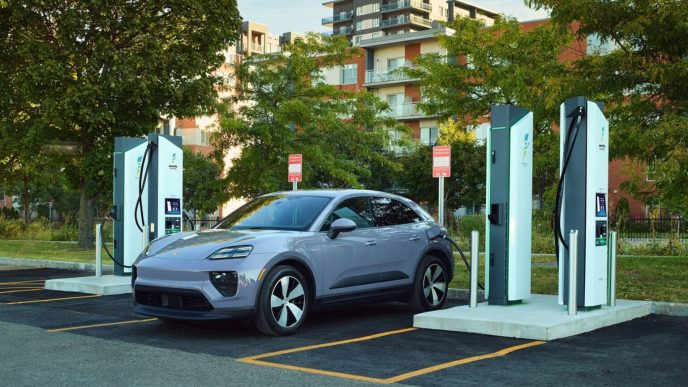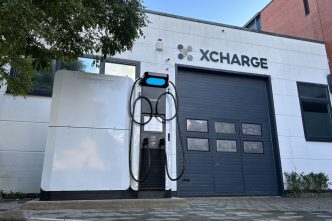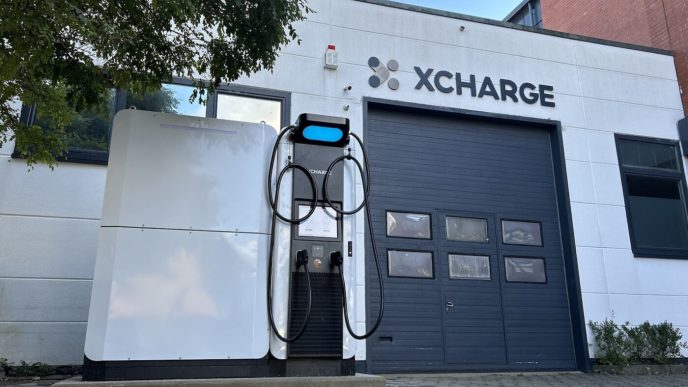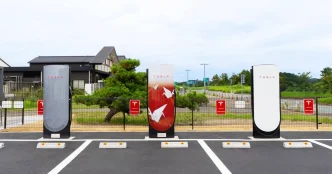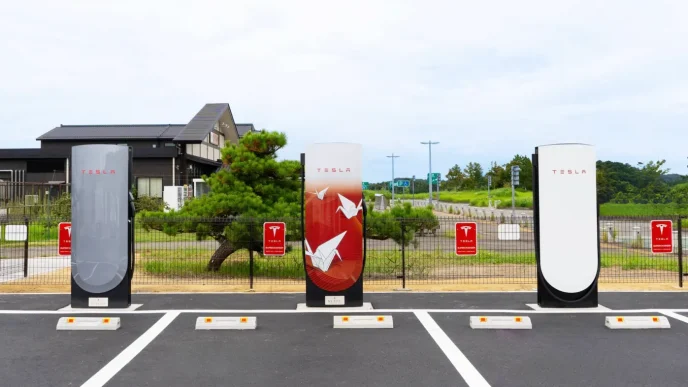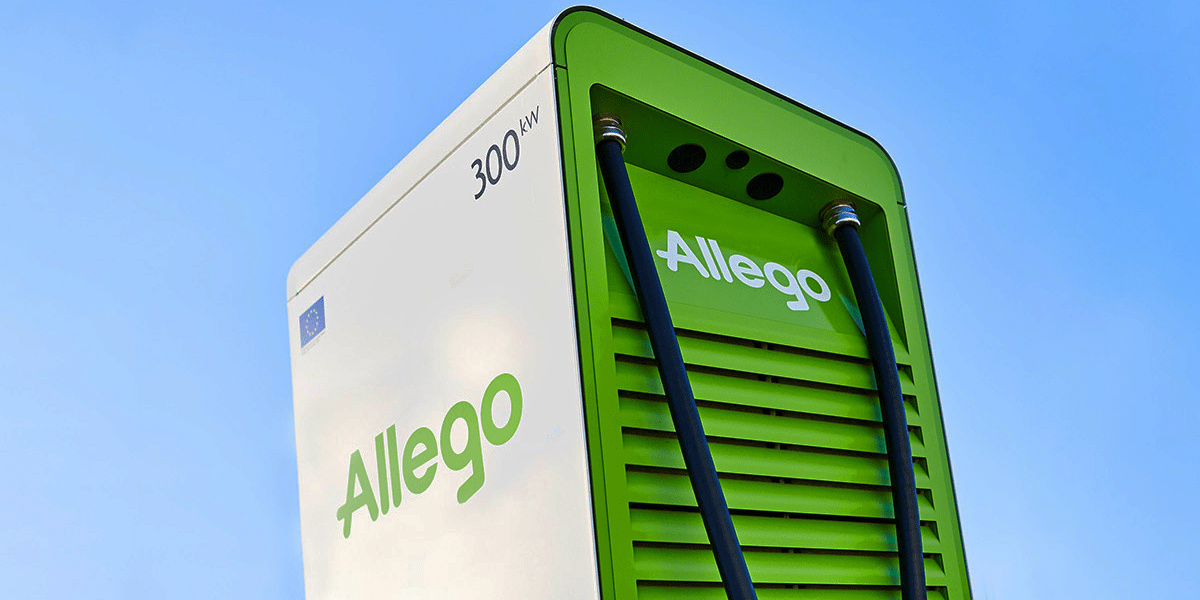ChargePoint has introduced an economical EV charging solution designed specifically for fleets, allowing operators to transition to electric vehicles without incurring excessive costs. The new CPF50 Level 2 charger is priced at $699, making it a viable option for both small businesses beginning their electrification journey and larger fleets seeking to reduce their total cost of ownership.
The CPF50 charger can be integrated with ChargePoint’s fleet management software, which provides operators with real-time insights into vehicle readiness, power usage, and the status of charging stations. This software also includes energy management features aimed at lowering fuel costs, managing access control, and streamlining the complexities associated with station management. Fleet operators can manage multiple CPF50 units through the cloud, enabling power sharing to minimize charging expenses and prolong battery life. The charger is compatible with both J1772 and NACS connectors, offering flexibility to work with various types of electric vehicles.
Rick Wilmer, CEO of ChargePoint, highlighted the company’s mission to facilitate the transition to electric for all users, including individuals, businesses, and fleets. “We’re making the hardware more affordable, and when combined with our powerful fleet software platform, the offering can meet the charging needs of fleets of all sizes to optimize their savings,” Wilmer stated.
The push to electrify fleets aligns with the broader goal of reducing greenhouse gas emissions, as transportation accounts for nearly 30% of total emissions in the United States. With the introduction of electric commercial vehicles across light, medium, and heavy-duty categories, more fleets are now positioned to adopt electric solutions and decrease their environmental impact.
Looking to the future, ChargePoint is also preparing to support the charging needs of electric heavy-duty vehicles. The company’s Megawatt Charging System is anticipated to make long-haul electric trucking a reality, featuring chargers that deliver energy up to 20 times faster than existing DC chargers used for passenger EVs. Announced earlier this year, the Megawatt Charging System will offer bi-directional charging capabilities and aims to provide an output of up to 3 megawatts in the future.


